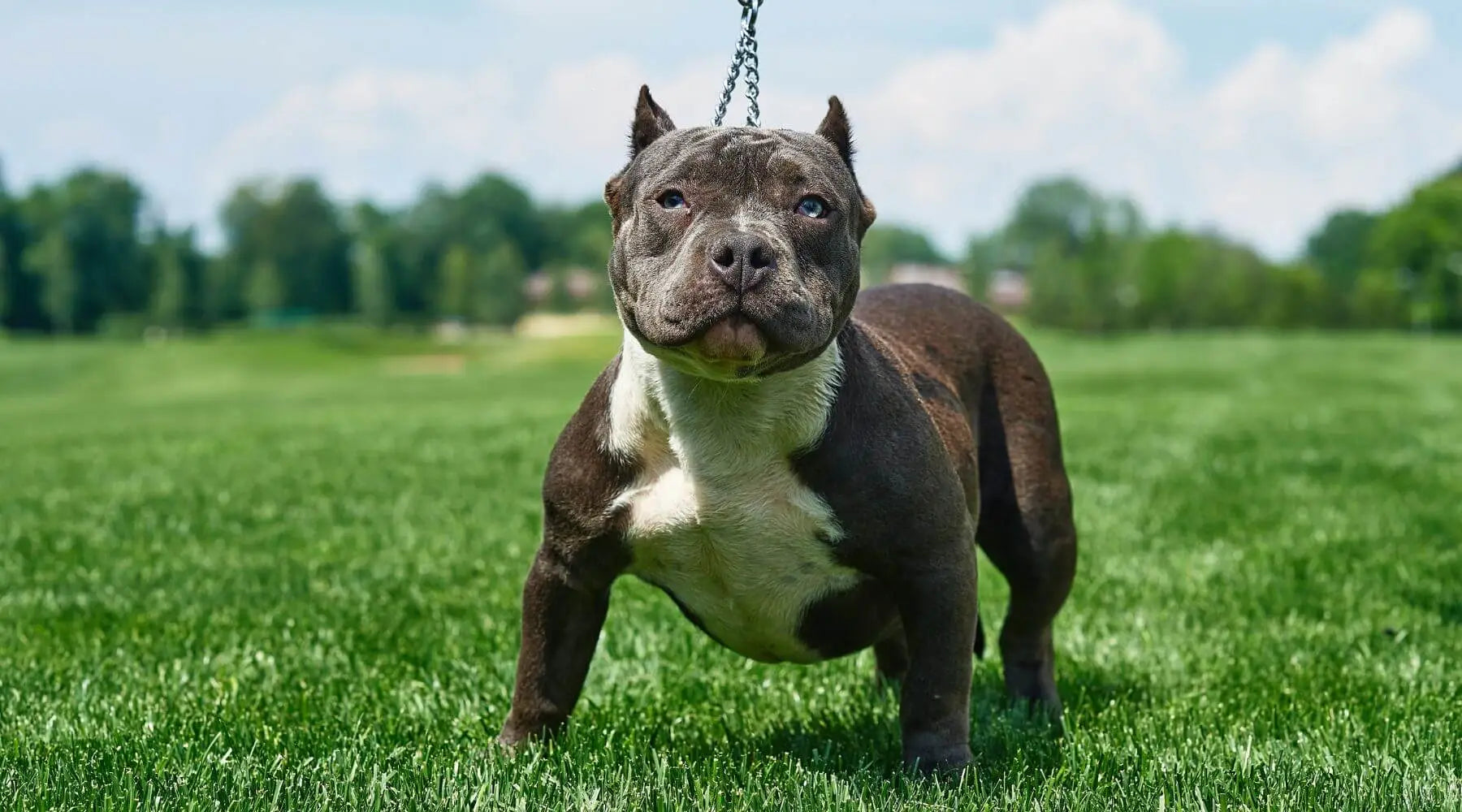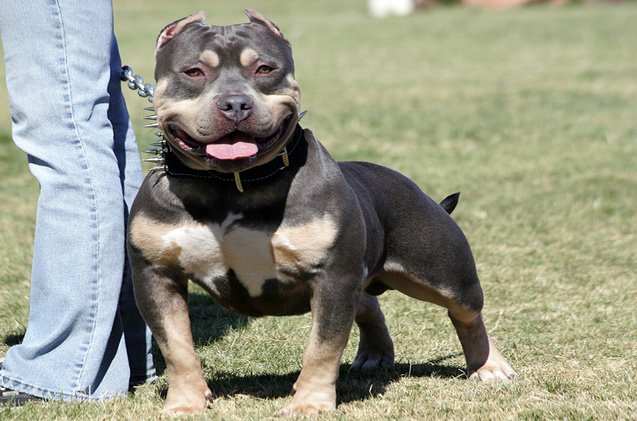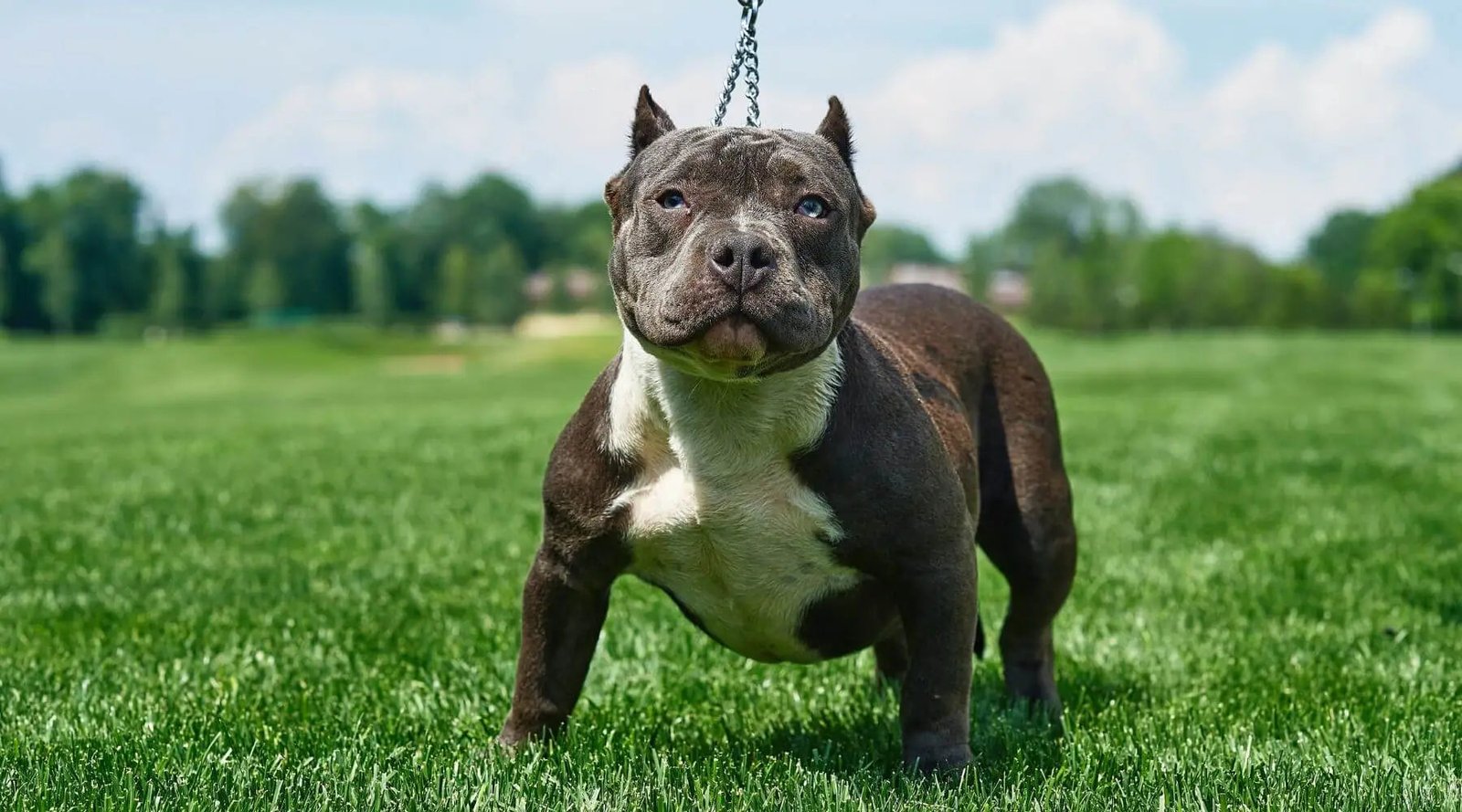Did you know that pitbulls are often smaller in size compared to other dog breeds? Despite their notorious reputation, these compact canines can surprise you with their petite stature.
The small size of pitbulls can be attributed to various factors. Firstly, selective breeding plays a role in shaping their physical characteristics. Breeders often aim for smaller pitbulls as they are more manageable and can adapt well to urban living. Additionally, it is believed that the introduction of bulldog and terrier genes into their bloodline has contributed to their smaller size. This blend of breeds has resulted in a compact and agile dog that still possesses the signature strength and determination of a pitbull. So, if you’re looking for a loyal and compact companion, a small-sized pitbull might be the perfect fit for you.

Why are Pitbulls Small? Unraveling the Mystery
Pitbulls are known for their muscular and robust appearance, but as you delve into the world of these beloved dogs, you might come across some smaller-sized pitbulls that raise the question: “Why are pitbulls small?” In this article, we will explore the various factors that contribute to the smaller size of certain pitbulls, including genetics, breeding practices, and environmental influences. We will also discuss the pros and cons of owning a smaller pitbull and provide some helpful tips for those considering bringing one into their family.
Genetics: The Building Blocks of Size
When it comes to understanding why certain pitbulls are small, genetics play a significant role. Just like humans, dogs inherit traits from their parents, including their size. Pitbulls are a mixed breed, and their size can be influenced by the breeds they are crossed with. While American Pitbull Terriers are known for their muscular stature, if they are bred with smaller breeds like French Bulldogs or Staffordshire Bull Terriers, their offspring may inherit the smaller size genes from these breeds.
Additionally, within the world of pitbulls, there are specific bloodlines that are known for producing smaller-sized dogs. Breeders often selectively breed these bloodlines to maintain the desired size characteristics, resulting in smaller pitbulls. However, it is important to note that not all pitbulls are small, and the size can vary even within the same litter due to the complex nature of genetic inheritance.
Selective Breeding for Size: The Controversy
Selective breeding for size in pitbulls has sparked a great deal of debate within the dog community. On one hand, proponents argue that selectively breeding for smaller sizes can lead to healthier dogs with fewer health issues commonly associated with larger breeds. They claim that smaller pitbulls are generally more agile, easier to handle, and less prone to joint and bone problems. This can make them ideal companions for individuals or families with limited space or physical capabilities.
On the other hand, critics argue that excessive selective breeding for size can result in health concerns, such as respiratory issues, skin problems, and even increased aggression. These concerns arise when breeders prioritize size over the overall health and temperament of the dogs. It is crucial for responsible breeders to maintain a balance between size and the overall well-being of the dogs, emphasizing health and temperament as much as size.
Environmental Influences: The Impact of Nutrition and Care
While genetics lay the foundation for a pitbull’s size, environmental influences can also contribute to their overall growth and development. Nutrition plays a crucial role in determining a dog’s size, and inadequate or improper nutrition during crucial growth stages can result in stunted growth. Ensuring that pitbulls receive a balanced and nutritious diet from an early age is essential for healthy growth and development.
In addition to nutrition, proper care and exercise also play a significant role in a pitbull’s size. Regular exercise helps maintain muscle tone and prevents excessive weight gain, which can affect overall size. Adequate mental stimulation, socialization, and a loving environment also contribute to a pitbull’s overall well-being, allowing them to thrive and reach their full potential size.
Benefits of Owning a Smaller Pitbull
While some pitbull enthusiasts are drawn to the larger, more imposing pitbulls, there are numerous benefits to owning a smaller pitbull. Smaller pitbulls are often more manageable in terms of space, making them suitable for apartment living or families with limited room. They may also require less food intake and have lower exercise requirements, making them a practical choice for individuals with busy lifestyles.
Smaller pitbulls can also be more adaptable and easier to transport, making them great companions for individuals who frequently travel or enjoy outdoor activities. Additionally, smaller pitbulls can be just as loyal, loving, and affectionate as their larger counterparts, creating strong bonds with their owners and bringing joy to their lives.
Finding the Perfect Fit: Choosing a Small Pitbull
Choosing a small pitbull requires careful consideration and research. It is essential to work with reputable breeders who prioritize the health and well-being of their dogs over size alone. Look for breeders who conduct necessary health screenings, provide proper nutrition and care, and prioritize responsible breeding practices.
When selecting a small pitbull, spend time interacting with the puppies to assess their temperament and compatibility with your lifestyle. Consider their energy levels, exercise needs, and compatibility with other pets or children in your household. Remember, the size of the pitbull is just one aspect to consider; their overall health, temperament, and compatibility with your lifestyle are equally important.
Nurturing Your Small Pitbull: Tips for Their Care
Once you bring a small pitbull into your family, it’s crucial to provide them with the care and attention they deserve. Here are some tips for nurturing your small pitbull:
1. Balanced Nutrition: Feed your pitbull a diet recommended by a veterinarian that meets their specific nutritional needs, ensuring they receive all the necessary vitamins and minerals to support healthy growth and development.
2. Regular Exercise: Engage your pitbull in regular exercise appropriate for their size and energy levels. This can include daily walks, playtime, and mental stimulation activities.
3. Socialization: Expose your pitbull to different environments, people, and animals from an early age to promote positive socialization and prevent behavioral issues.
4. Training and Mental Stimulation: Provide your pitbull with consistent training to establish boundaries and reinforce desired behaviors. Mental stimulation through interactive toys and puzzles can also keep them mentally engaged and prevent boredom.
5. Veterinary Care: Schedule regular check-ups with a veterinarian to monitor your pitbull’s health, administer necessary vaccinations, and address any health concerns that may arise.
Remember, each pitbull, regardless of size, is unique and has individual needs. Being attentive to your pitbull’s specific requirements and providing them with love, care, and a nurturing environment will ensure a happy and healthy life together.
Small Pitbulls: A Bundle of Love and Joy
While the question of why some pitbulls are small can be attributed to genetics, breeding practices, and environmental influences, it is important to remember that the size of a pitbull does not define their worth or loveability. Small pitbulls bring an abundance of joy, companionship, and loyalty to their families. Whether large or small, pitbulls continue to capture the hearts of dog lovers worldwide with their unique personalities and unwavering devotion. So, if you’re considering adding a small pitbull to your family, prepare to embrace a bundle of love and joy that will enrich your life in ways you never imagined.
Key Takeaways: Why Pitbull is Small?
- Pitbulls come in different sizes, and some are naturally smaller than others.
- Genetics play a significant role in determining a pitbull’s size.
- Improper breeding or health issues can also result in smaller pitbulls.
- Smaller pitbulls can be just as loving and energetic as their larger counterparts.
- If you’re considering getting a pitbull, make sure to choose a reputable breeder and provide proper care.
Frequently Asked Questions
Are you curious about why Pitbulls are small? Find the answers to your questions below.
1. Are all Pitbulls small in size?
Pitbulls come in various sizes, and not all of them are small. The Bully variety, also known as American Bullies, can be larger and heavier. However, if you’re referring specifically to the American Pitbull Terrier breed, they are generally medium-sized dogs. They have a well-muscled, compact body that gives them their distinctive appearance. While they are not typically considered small dogs, they aren’t as large as some other breeds.
If you’re looking for a smaller dog, you may want to consider other breeds or variations within the Pitbull family. It’s important to remember that size can vary among individual dogs, so it’s best to consult with a breeder or visit shelters to see which dog aligns with your size preference.
2. What factors contribute to the small size of Pitbulls?
The size of a Pitbull is influenced by various factors, including genetics, breeding, and nutrition. Breeders often aim to produce Pitbulls within a specific size range, so they select parent dogs with desired characteristics. This selective breeding contributes to maintaining a consistent size range for the breed. Additionally, Pitbulls that receive proper nutrition and care can grow to their full potential size.
It’s worth mentioning that certain health issues can affect the growth and size of a Pitbull. Conditions like stunted growth or malnutrition during early development can result in smaller-sized dogs. Regular vet check-ups and providing a balanced diet are crucial for ensuring optimal growth and maintaining a healthy size for your Pitbull.
3. Do small Pitbulls have any advantages over larger ones?
While size doesn’t necessarily determine a Pitbull’s temperament or behavior, smaller Pitbulls may have certain advantages. They require less space, making them a better fit for apartment living or homes with limited outdoor areas. Their smaller size also means they consume less food, which can be cost-effective for owners. Furthermore, small Pitbulls are more manageable to handle and transport, making trips to the veterinarian or outings more convenient.
However, it’s important to note that each Pitbull, regardless of size, is an individual with its own unique personality and needs. It’s crucial to provide proper training, socialization, and care to ensure a well-rounded and happy pet, regardless of their size.
4. Can Pitbulls grow bigger if they are small as puppies?
While puppies of any breed may appear small, it doesn’t necessarily indicate their size as adults. Pitbulls typically experience a growth spurt during their first year of life, but their overall adult size is largely determined by genetics. If both of a Pitbull’s parents are small, it’s more likely that the puppy will also be small as an adult. However, there may be some individual variation, and puppies from the same litter can grow to different sizes.
If you’re considering adopting a Pitbull puppy and are concerned about their potential size, it’s helpful to meet the puppy’s parents or learn about their size. A responsible breeder or shelter should provide information about the parents’ size and help you make an informed decision.
5. Can a small Pitbull be as strong and athletic as larger ones?
Size does not necessarily determine a Pitbull’s strength and athleticism. Even small Pitbulls can possess incredible strength, agility, and endurance. The American Pitbull Terrier breed, known for its muscular build, has an impressive power-to-size ratio. Small Pitbulls can excel in various activities, such as agility courses, obedience training, and weight pulling competitions, just like their larger counterparts.
It’s important to keep in mind that a Pitbull’s individual temperament, training, and physical conditioning play a significant role in their athleticism and strength. Regular exercise, mental stimulation, and a well-balanced diet are crucial for keeping any Pitbull, regardless of size, in good physical shape and optimal health.

Misunderstanding Happens When a Playful Pitbull Meets a Miniature Pinscher || ViralHog
Summary
So why is the Pitbull small? Well, it turns out that Pitbulls are not actually small dogs. Despite their reputation, Pitbulls can vary in size just like any other breed. Some Pitbulls are small due to genetics, while others may be smaller due to health issues or poor nutrition. It’s important to remember that size doesn’t determine a dog’s personality or behavior – each Pitbull is unique!
While some people may think that small Pitbulls are more desirable, it’s important to focus on their health and well-being instead. Whether big or small, Pitbulls make great companions with lots of love to give. So, instead of worrying about their size, let’s show them the care and love they deserve.
